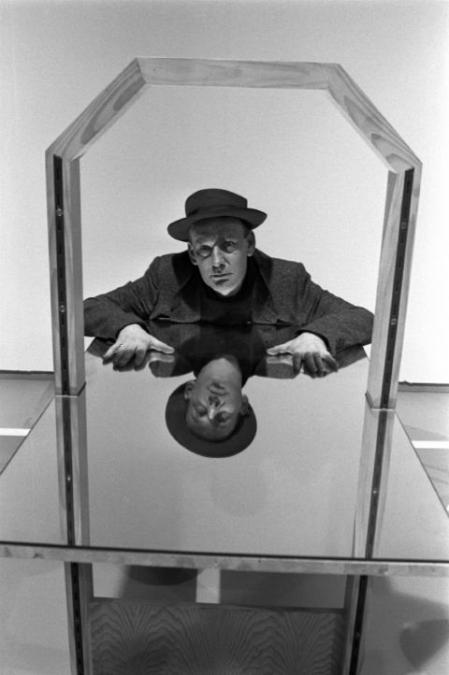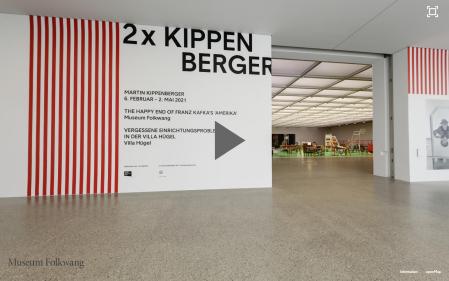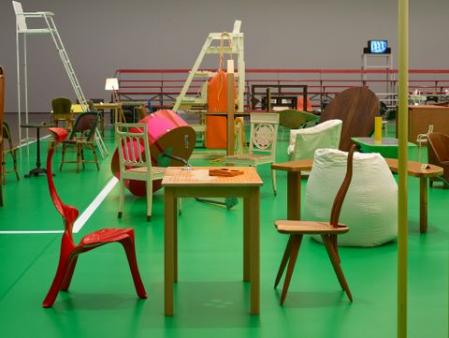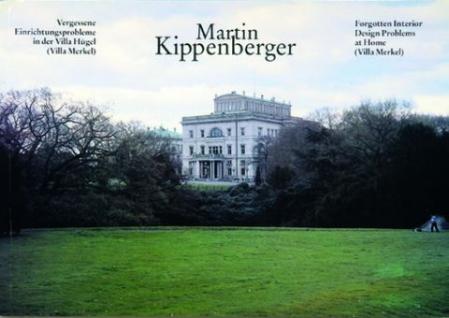2x KIPPENBERGER
Two exhibitions in Essen – presented by Museum Folkwang and Villa Hügel – focus on the work of artist Martin Kippenberger.
The Happy End of Franz Kafka’s ‚Amerika‘ (Museum Folkwang)
Every sentence an exclamation! Strident, demanding, challenging, absorbing and captivating; provocative, yet profoundly humanist – this is more or less how the artist Martin Kippenberger (1953–1997) gets described by his erstwhile companions. This exhibition – The Happy End of Franz Kafka’s ‘Amerika’, as Kippenberger himself called it when, after many years of preparation, it was shown for the first time in 1994 at Rotterdam’s Museum Boijmans Van Beuningen – is the story of a life, his life, but also that of many lives, our lives – told through the example of Karl Roßmann.
Kafka’s protagonist, the young Karl Roßmann, is sent by his parents to America and wanders on his own from New York through the boondocks until he comes across an advertisement for the Nature Theatre of Oklahoma: “All welcome! Anyone who wants to be an artist, step forward!” Whether his hopes for a better life are fulfilled there remains unanswered in the novel, which was never completed. Inspired by Kafka’s literary vision of mass simultaneous job interviews at the Clayton racecourse, Kippenberger produces a three-dimensional image that is both arena and exhibition. Using 50 table-and-chair ensembles, comprising readymades, found objects, specific fabrications, and artworks by Kippenberger and numerous artist friends, he projects a Kafkaesque communication zone onto a stylised, 20 m × 23 m football field. Among the designer furniture, home-made constructions and sculptural objects, high chairs and ejector seats, there is room for an equally large number of job-interview situations: the symbolic points in a life, his (artistic) life, emblematic of verbal communication and the constant struggle for recognition. Between permanent revolt and incisive social analysis, the work unfolds Kippenberger’s aesthetic cosmos as an exhibition and confronts the spectator with social questions about the mechanisms of career success, integration, repression and power. Whilst at the first presentation in the Museum Boijmans Van Beuningen Kippenberger integrated pieces of furniture from the museum’s applied arts holdings into his own collection, in Essen, “forgotten interior design problems” from Villa Hügel will be included in the Museum Folkwang exhibition.
Funded by

Forgotten Interior Design Problems at Villa Hügel (Villa Hügel)
This exhibition will present around 120 of Martin Kippenberger’s books and 100 of his posters. Its title is borrowed from an exhibition of the artist’s work, which was shown in 1996. For Kippenberger, books and posters played an important role throughout his life. Now his artist books are on display in the historical library of Villa Hügel. For the duration of the exhibition, Kippenberger’s experimental and sometimes provocative books will stand in marked contrast to the classic book collection of the Krupp family. The presentation of the posters places particular emphasis on the various forms of Kippenberger’s self-dramatisation and his position within a network of artist friends.
Funded by
To the exhibition at Villa Hügel …
Media partner
Share on




